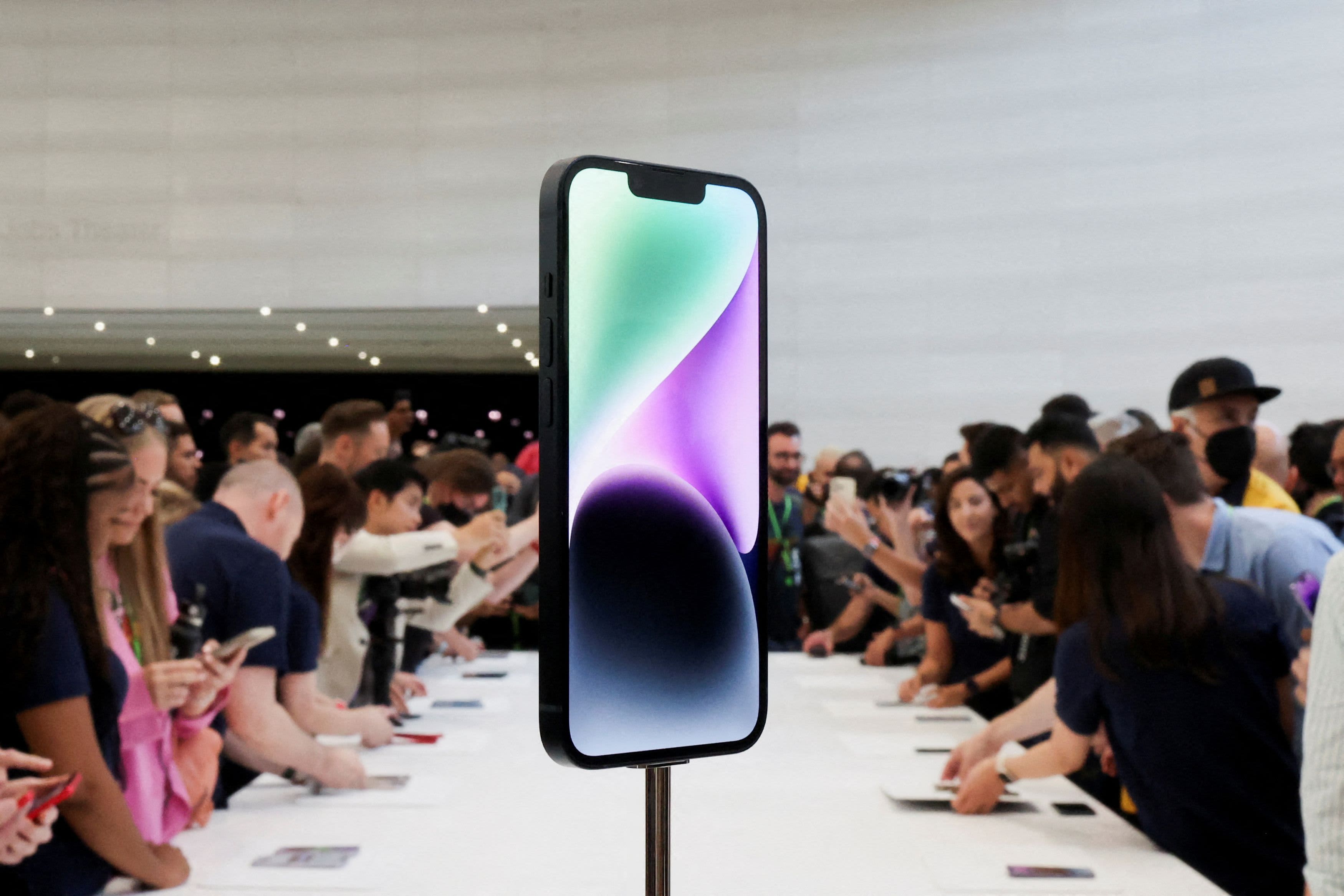Technology
Tuesday, September 20th, 2022 4:27 pm EDT
Microsoft on Tuesday said it’s starting to release the first major update to Windows 11, the current version of its PC operating system. Installing the free update could make PCs more accessible, more convenient, more secure — and maybe even more green.
In the past decade, Microsoft has diversified its business away from Windows by growing its Azure public cloud and acquiring assets such as the LinkedIn business social network, but Windows still generates 12% of the company’s revenue.
related investing news
The updates help Microsoft show that it hasn’t given up on modernizing Windows, which dates to the 1980s and is more popular than any other operating system for personal computers. But the company is delivering only one sizable update to Windows each year, compared with two per year for Windows 10, the predecessor to Windows 11.
“Our work is never done to ensure Windows evolves and adapts to you,” wrote Panos Panay, Microsoft’s product chief, in a blog post on the changes.
Among versions of Windows, Windows 10 remains the most popular, with about 72% share, according to data collected by privately held StatCounter. Support for that operating system ends in 2025, and many businesses are still relying on it for their PC fleets. But Windows 11, first released in October 2021, is growing in popularity, with 13% share in August, up from 2.6% in January.
The Windows 11 2022 Update, as the new version is called, comes with a video-editing program, new customization options for the Start menu and access to additional Android apps. Here are some of the biggest changes:
Start menu changes. People have been able to pin apps to the Start menu, which now appears at the center of the screen. Now it’s becoming possible to create a folder of apps in that Start menu, by dragging one app icon on top of another. In addition, the density of the grid of apps in the Start menu can change. In the Start section of the Settings app, you can click a button that says, “More pins.” Alternatively, you can click “More recommendations” to see additional suggested files in the Start menu.
A new way to organize windows. Windows 11 comes with a way to organize windows neatly on your screen. The new update goes further. Instead of hovering over the maximize button of a window to see what Microsoft calls Snap Layout options, you’ll be able to drag a window to the top of the screen and then drop it on a zone that appears on the screen. You can then put additional windows in other zones. This feature now works with a touchscreen.
New video editing app. One year ago Microsoft acquired Clipchamp, a startup that built a video-editing app. Now it’s pre-installed in Windows. The free version will let you rotate and trim videos, apply a set of filters, draw on stock images and videos, and generate exports without watermarks.
Energy savings. Windows Update, the tool for downloading and installing operating-system updates, can plan to install updates when local utilities are relying on energy resources that generate lower emissions. To use this feature, your PC must be plugged in, turned on and connected to the internet, and there must be information about carbon intensity in your area. Microsoft said it has also updated the default power setting for the “Sleep” and “Screen off” modes that will lower emissions when PCs aren’t doing anything.
Expanded Android app access. One of the most notable features of Windows 11 is its ability to run Android apps, thanks to the inclusion of the Amazon Appstore. It’s now available in 31 countries, with over 20,000 Android apps, Microsoft said. The company is promising improved graphical performance for Android apps.
Don’t open that app! A feature named Smart App Control can automatically stop you from opening an insecure application or file. You can disable the feature, but Microsoft discourages that, and you won’t be able to enable it again without reinstalling Windows.
Better graphics for older games. Graphical gains will also show up for games that rely on older DirectX 10 or DirectX 11 application programming interfaces and are not running in full-screen mode. This includes variable refresh rate, which can result in more new images being displayed per second for devices with higher refresh rates.
Better video calls with advanced PCs. Some new PCs come with artificial-intelligence chips onboard, and if you have one of those, Windows 11 will be able to remove background noise on video calls, have the camera follow you as you move around on calls and change your video feed so it appears that you’re making eye contact with others on your calls.
Better search. When you search for apps and settings in the search box on the taskbar, results will show up faster and will be more accurate.
Close caption all the things. People are increasingly switching on closed captions when they watch videos, and a new accessibility feature in Windows called Live Captions makes this possible for audio or video in any application.
Voice commands. Another accessibility feature, Voice Access, gives you a way to control your PC by speaking. Sometimes that might be an easier way to navigate than typing on the keyboard or clicking the mouse.
More voice choices. Not everyone liked the sound of the voice that reads text on screen in Windows’ Narrator accessibility feature, so now Microsoft is offering up three natural-sounding voices that draw on artificial intelligence.
How to get Windows 11 2022 Update
People running Windows 11 can install the new update by opening the Settings app, navigating to Windows Update and clicking the button that says “Check for updates.” Those on Windows 10 can see if their PCs can run Windows 11 using the PC Health Check app, and Windows Update will show them if they’re eligible to upgrade to the Windows 11 2022 Update, aka the Windows 11, version 22H2.
Not all of the Windows features that early adopters have gotten access to through Microsoft’s Windows Insider Program will be immediately available. The ability to view multiple folders as tabs in File Explorer, a feature that arrived on Apple’s MacOS in 2013, should arrive in October.
This post has been syndicated from a third-party source. View the original article here.






